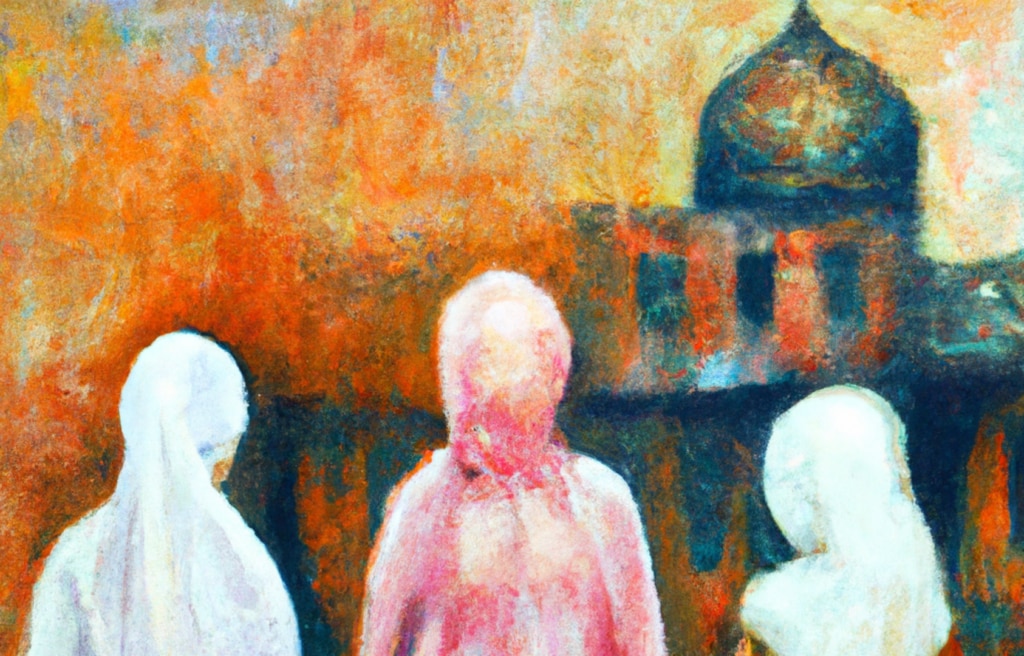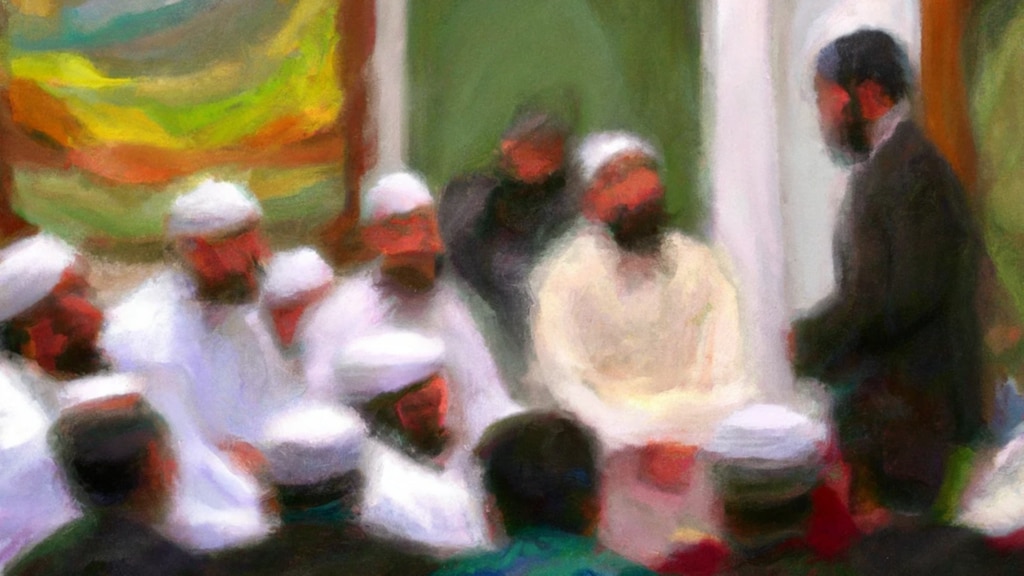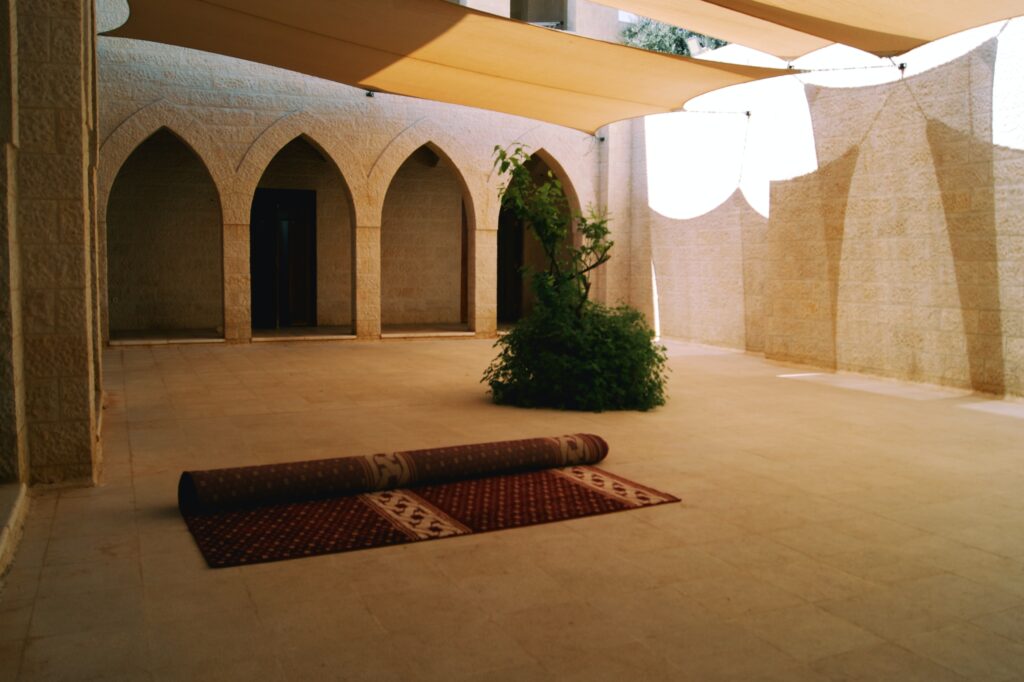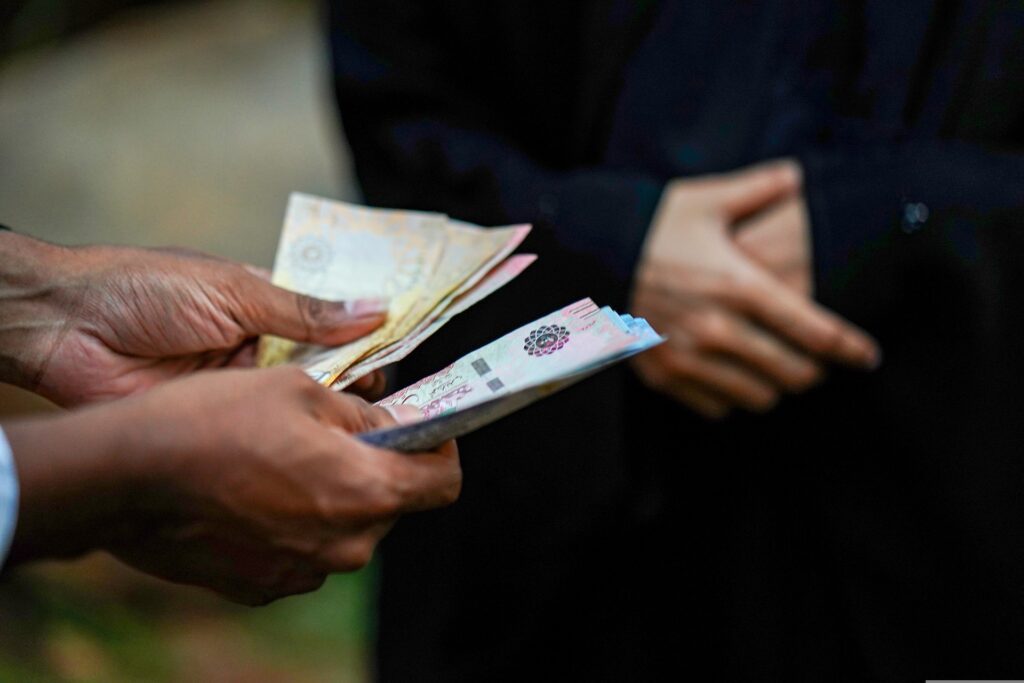Guidance regarding basic Islamic issues – which Hazrat Amirul Momineen, Khalifatul Masih Vaa has given on various occasions in his written correspondence and during MTA programmes – is being officially published below for everyone’s benefit

Feminism, nikah procedures for women, bride’s consent, wali (guardian)
A lady from India wrote to Hazrat Amirul Momineen, Khalifatul Masih Vaa that she was developing some thoughts as advocated by feminists that were contrary to the teachings of Islam. She also asked the following questions:
• When getting married, why can the bride not set the amount of the mahr herself?
• Why is the bride’s silence considered her consent?
• Why are modesty and quietness in women so admired, while we live in a society where women’s rights are debated and discussed?
• At the time of the announcement of her nikah, if the bride herself is not physically present in the room, could her wali not misrepresent her deliberately?
Huzoor-e-Anwaraa, in his letter dated 18 June 2021, provided the following guidance to the questions:
“The development of [negative] thoughts about something [that is true] or the formation of objections in one’s mind about it is usually due to ignorance or the lack of complete knowledge about that thing. Moreover, the objector is sometimes objecting simply on the basis of hearsay. Therefore, the Holy Quran has taught us to undertake thorough research before making any decision about something. Hence, Allah the Exalted states in the Holy Quran:
يٰۤاَيُّهَا الَّذِيۡنَ اٰمَنُوۡۤا اِذَا ضَرَبۡتُمۡ فِيۡ سَبِيۡلِ اللّٰهِ فَتَبَيَّنُوۡا وَ لَا تَقُوۡلُوۡا لِمَنۡ اَلۡقٰۤي اِلَيۡكُمُ السَّلٰمَ لَسۡتَ مُؤۡمِنًا ۚ تَبۡتَغُوۡنَ عَرَضَ الۡحَيٰوةِ الدُّنۡيَا ۫ فَعِنۡدَ اللّٰهِ مَغَانِمُ كَثِيۡرَةٌ ؕ كَذٰلِكَ كُنۡتُمۡ مِّنۡ قَبۡلُ فَمَنَّ اللّٰهُ عَلَيۡكُمۡ فَتَبَيَّنُوۡا ؕ اِنَّ اللّٰهَ كَانَ بِمَا تَعۡمَلُوۡنَ خَبِيۡرًا
“‘O ye who believe! when you go forth in the cause of Allah, make proper investigation and say not to anyone who greets you with the greeting of peace, ‘Thou art not a believer.’ You seek the goods of this life, but with Allah are good things in plenty. Such were you before this, but Allah conferred His (special) favour on you; so do make proper investigation. Surely, Allah is well aware of what you do.’ (Holy Quran, Surah an-Nisa’, Ch. 4: V. 95)
“At another place, it states:
يٰۤاَيُّهَا الَّذِيۡنَ اٰمَنُوۡۤا اِنۡ جَآءَكُمۡ فَاسِقٌۢ بِنَبَاٍ فَتَبَيَّنُوۡۤا اَنۡ تُصِيۡبُوۡا قَوۡمًۢا بِجَهَالَةٍ فَتُصۡبِحُوۡا عَلٰي مَا فَعَلۡتُمۡ نٰدِمِيۡنَ
“‘O ye who believe! if an unrighteous person brings you any news, ascertain (the correctness of the report) fully, lest you harm a people in ignorance, and then become repentant for what you have done.’ (Holy Quran, Surah al-Hujurat, Ch. 49: V. 7)
“Thus, Islam has instructed its followers to thoroughly investigate all matters they deal with, whether they pertain to their own people or others. It does not like them to rely on conjuncture instead of certain knowledge. Hence, Allah the Exalted says:
اِنَّ الظَّنَّ لَا يُغۡنِيۡ مِنَ الۡحَقِّ شَيۡئًا ؕ
“‘Surely, conjecture avails nothing against truth.’ (Holy Quran, Surah Yunus, Ch. 10: V. 37)
“Moreover, the Holy Quran has also addressed this subject from different angles in many places, highlighting the fact that those who deny God Almighty and His Messengers have no absolute certainty when it comes to matters of faith, but rather rely solely on assumptions and conjectures. Therefore, the Holy Quran exhorts the believers to avoid suspicion and also declares certain types of suspicion as a sin, as it says:
يٰۤاَيُّهَا الَّذِيۡنَ اٰمَنُوا اجۡتَنِبُوۡا كَثِيۡرًا مِّنَ الظَّنِّ اِنَّ بَعۡضَ الظَّنِّ اِثۡمٌ
“‘O ye who believe! avoid most of suspicions; for suspicion in some cases is a sin.’ (Holy Quran, Surah al-Hujurat, Ch. 49: V. 10)
“In your letter, you state that you were having thoughts contrary to Islam’s teachings. You have also written that you were researching the various Islamic commandments. Doing research is a very good habit, but it is also important to consider what you are basing your research on. In order to help us understand the Holy Quran, the sunnah of the Holy Prophetsa and the ahadith, Allah Almighty has sent the Promised Messiahas as the Hakam ‘Adl in this era. He was sent for the reformation of the world. The purpose of his advent was to bring back and present to the world, the true teaching of Islam, which had risen from the earth to the Pleiades. Therefore, prioritise the study of the books of the Promised Messiahas in your research and study them repeatedly. After that, if you also study the books of the Khulafa-e-Ahmadiyyat, which are actually based on the ‘ilm al-kalam introduced by the Promised Messiahas, insha-Allah, all your doubts will be removed.
“As far as your questions are concerned, they have also risen due to misunderstanding and insufficient knowledge of Islam’s teachings. According to Islamic teachings, a bride’s consent is of utmost importance in a marriage and no nikah can be officiated against her will. And to say that her silence is taken as her consent is also inaccurate. For marriage, not only the bride’s formal consent is sought, but a nikah form is also signed by her and her signature on the form must be accompanied by the testimony of two witnesses, who testify that the bride has willingly signed the nikah form in front of them. Taking silence as consent is not an Islamic tenet, but a regional and traditional custom [on account of some girls being too shy as is mentioned in ahadith].
“Otherwise, it is true that in addition to the consent of the bride, Islam has also declared the approval of her guardian [wali], who may be her very close relative i.e. her father or brother etc., to be necessary for marriage. The great wisdom in this directive is that since a girl moves from one family to another after getting married, it has been made clear to that other family by incorporating the condition of guardianship into the marriage contract, that although women are generally considered more vulnerable out in society than men, if this girl is wronged in any way, she has a family who will support her and will hold those who wrong her accountable.

“Even in this condition of having a wali, the will of the bride has been prioritised in this way that even though the wali is a very close relative of the bride, about whom it is assumed that he would definitely look after the interests of the bride, nevertheless, if a girl has any reservations that her wali may intend to marry her to someone against her will, then according to the sunnah of the Holy Prophetsa, the Khalifatul Masih can, as the spiritual father of the Ahmadi woman, rightfully marry her to someone according to her own will, by annulling the guardianship of the biological wali and appointing a wakeel to represent him. By the grace of Allah the Exalted, this is practised in the Ahmadiyya Muslim Community and several Ahmadi girls have been able to secure this right through the Khalifatul Masih.
“The declaration [ijab-o-qubul] part of the nikah solemnisation ceremony is a public gathering where non-mahram men are also present and Islam, in view of many a wisdom, has prohibited the unbridled interaction between non-mahram men and women. Thus, keeping in view the dignity and honour of a woman, Islam has instead instructed her wali to declare her will on her behalf during that ceremony. However, before that [final proclamation], the will and consent of the bride have been fully prioritised in settling and deciding all matters related to the marriage. Hence, during the blessed era of the Holy Prophetsa, when the Holy Prophetsa once instructed a companion to take a look at a girl before marrying her, and the girl’s father refused to show his daughter to the man, who was not yet related to her, [it so happened that] when the girl heard that the Holy Prophetsa had given the instruction, she immediately opened the door, came out and said to the companion that if the Holy Prophetsa had instructed him, then he may see her. (Sunan Ibn Majah, Kitab an-nikah, Bab an-nazri ’ila l-mar’ati iza ’arada ’an yatazawwajaha)
“Thus, Islam has, like in the case of other commandments, given full authority to women in matters of nikah and marriage within the permissible limits.
“Where religion imposes certain curbs on women in certain matters, it also imposes certain restrictions on men. Regardless, Satan keeps inventing various ways to deceive man everywhere and in every era. Likewise, in this age, the forces of the antichrist [dajjal], who are in fact the representatives of Satan, are trying their utmost with all their might to lead people astray from the path of God Almighty. They are trying to turn people, especially the younger generation, against religion by instilling various kinds of doubts in their minds and using different ploys.
“Thus, it is the duty of every Ahmadi man and woman, on the one hand, to save themselves from the evils of the societies they live in, and on the other hand, to convey the true message of Islam to the people around them by demonstrating the best examples of Islamic values. Rather than forgetting Islamic teachings and becoming blind captives of social evils, they should try their level best to promote them in society. So, now you have to decide for yourself whether you want to beautify your world and the hereafter by obeying the commands of God Almighty and by following the path of faith, which is no doubt somewhat challenging, or if you want to follow the seemingly dazzling and alluring ways and flattering words of Satan and these dajjali forces and destroy your world and the hereafter.”
[…]
Officiating one’s own nikah
Secretary Umur-e-Ammah Germany wrote to the Mufti-e-Silsilah regarding an Ahmadi officiating his own nikah with a non-Ahmadi woman, later divorcing her and about the circumstances of that woman’s bai‘at later on. He then asked him about the Islamic legal status of that nikah. When this matter was presented before Hazrat Amirul Momineen, Khalifatul Masih Vaa, he gave the following guidance to the National Ameer Germany in his letter dated 25 July 2022:
“If this person has officiated this nikah with the consent of the girl and her wali in the presence of witnesses and has also registered this nikah under the system of the Jamaat by filling out the nikah form and the people of his halqah in the Jamaat he resides have been informed about their marriage, then this marriage is permissible and valid. However, if the above-mentioned conditions have not been fulfilled and the nikah has been performed secretly and even after the nikah, it has not been publicised in such a way that the circles of friends of both the man and the woman would become aware of it, then it would be classified as a secret marriage. Consequently, the punishment [ta‘zir] that he has been given in this regard is fully justified.”

Salat al-Tasbih
A lady asked Hazrat Amirul Momineen, Khalifatul Masih Vaa about the method of performing salat at-tasbih and how one should complete the 300 tasbihat during the four rak‘ats of this prayer. Huzoor-e-Anwaraa, in his letter dated 25 July 2021, provided the following reply to this question:
“It is absolutely evident from the ahadith narrated about salat al-tasbih, that the Holy Prophetsa himself never performed this prayer, nor is there any evidence regarding the Rightly-Guided caliphs having done so. Similarly, we do not find any narration about performing this prayer from the life of the Promised Messiahas, the ardent devotee of the Holy Prophetsa who was sent for the Second Revival of Islam.
“However, it is mentioned in some ahadith that the Holy Prophetsa taught this prayer to some of his Companionsra and advised them to observe it. Thus, classical scholars have two types of opinions regarding the ahadith about Salatul Tasbeeh; some have declared these hadiths acceptable while others have called them fabricated [maudu‘], questioning the authenticity of their asnad. Hence, there is also a difference of opinion among the four imams on this point. Hazrat Imam Ahmadrh ibn Hanbal does not even give the status of mustahabb to this prayer, while other jurists call it mustahabb and are also convinced of its excellence.
“In my opinion, it is not necessary to observe this prayer, however, if a person wants to offer it, then we should keep in mind the following instruction of Hazrat Alira which is also narrated by the Promised Messiahas: A person was praying at a time when it is not permissible to offer prayers. When Hazrat Alira received a complaint about this, he replied that he did not want to be the subject of the following verses:
اَرَءَيۡتَ الَّذِيۡ يَنۡهٰ عَبۡدًا اِذَا صَلّٰي
“‘You see the one who forbids the servant to offer a prayer.’ [Surah al-Alaq, Ch.96: V.10-11]
(Musannaf of Abd al-Razzaq, Kitab salat al-‘idain, Bab as-salati qabla khuruji l-imami wa ba‘d, Juz’ III, Hadith no. 5626 as cited in Al-Badr, No. 15, Vol. 2, 1 May 1903, p. 114)
“Thus, if someone wants to offer this prayer alone, we do not stop them. However, performing this prayer in congregation is an innovation and is prohibited.”
The method of performing Salat at-Tasbih
“As far as the method of performing Salat at-Tasbih is concerned, it is narrated in Sunan Abi Dawud by Hazrat Abdullah Ibn Abbasra that Allah’s Messengersa said to Hazrat Abbasra:
1. ‘[…] You should pray four rak‘ahs, reciting Surah al-Fatihah in each one and [another portion of the Holy Quran.]
2. When you finish the recitation […]you should say the following 15 times while standing: سُبْحَانَ اللَّهِ وَالْحَمْدُ لِلَّهِ وَلَا إِلَهَ إِلَّا اللَّهُ وَاللَّهُ أَكْبَرُ (i.e. ‘Holy is Allah.’, ‘All praise belongs to Allah.’, ‘There is no god but Allah.’, ‘Allah is the Greatest.’)
3. Then you should bow down and say it ten times while in ruku‘).
4. Then you should raise your head after ruku‘ and say it ten times.
5. Then you should kneel down in sajdah (prostration) and say it ten times while in sajdah.
6. Then you should raise your head after the prostration and say it ten times [in the qa‘dah between the two sajdahs].
7. Then you should perform another sajdah and say it ten times [in that sajdah].
8. Then you should raise your head after sajdah and say it ten times […].
9. [Thus, there will be 75 tasbihat in each of the four rak‘ahs.]
10. If you can observe this prayer once daily, do so; if not, then once every Friday; if not, then once a month; if not, then once a year; if not, then once in your lifetime.’
(Sunan Abi Dawud, Kitab as-salat, Bab salati t-tasbih)”
Interest, profit and loss sharing (PLS)

A lady asked Hazrat Amirul Momineen, Khalifatul Masih Vaa about the profit received from state-owned and private banks and whether it fell into the category of interest [riba’] or not. Huzoor-e-Anwaraa, in his letter dated 23 August 2021, provided the following response to this question:
“Depositing money in a bank or another financial institution with the condition that one will only get dividends on it at a pre-determined fixed rate is an impermissible arrangement as this profit falls into the category of interest [riba’]. However, if money is deposited in a bank or financial institution with the condition of profit and loss sharing, as is the case with PLS i.e. profit-and-loss-sharing bank accounts in Pakistan, the profit received from such an account is not considered interest and the person can utilise it for his personal needs.
“Moreover, since state-owned banks and financial institutions invest their capital in philanthropic projects for the sake of the whole country, not only does the individual who deposits his or her money in them derive benefit but so do all other citizens. Moreover, the investment of these state-owned banks and financial institutions leads to growth in the country’s economy and generates more employment opportunities, which leads to an increase in state revenue. In such a scenario, where these state-owned banks and financial institutions share their profits with the public and private individuals who deposit money with them and give a certain portion of their profits to their account holders, it is permissible. This profit does not fall into the category of interest and the person can utilise it for his personal needs.”
(Compiled by Zaheer Ahmad Khan, Head of Records Department, Private Secretariat, London. Translated by Al Hakam)

